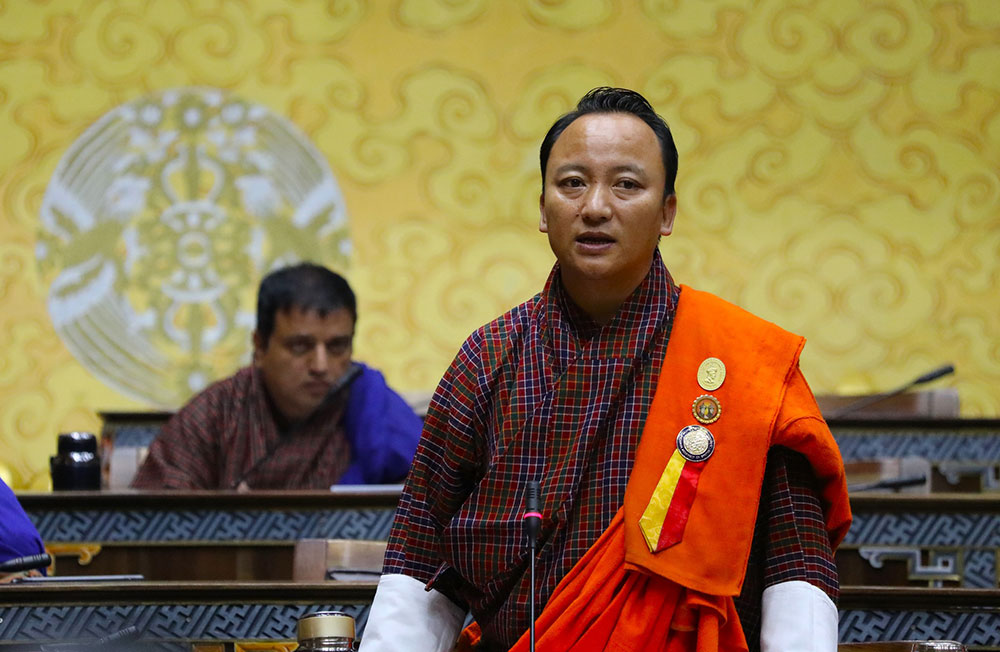Thukten Zangpo
The National Credit Guarantee Scheme (NCGS) has financed 214 projects so far, Finance Minister Namgay Tshering said during the question hour session in the National Assembly yesterday.
Lyonpo was responding to Drametse-Ngatshang MP Ugyen Wangdi who asked for the status of projects and non-performing loans under the scheme.
NCGS was launched in 2020 as a countercyclical measure, mainly to trigger investments and stimulate economic activities during the unprecedented times of Covid-19.
Lyonpo said that Nu 852 million was disbursed by the Bank of Bhutan, Bhutan Development Bank, and the National Cottage and Small Industry Development Bank.
He said that total investments in the economy accounted for Nu 1.1 billion and gross capital formation of Nu 692 million.
Of the total projects, 50 percent are in production and manufacturing, 28 percent in the service sector, and 22 percent in the agriculture and livestock sector across 18 dzongkhags. The project created over 1,800 jobs.
Lyonpo also said that non-performing loans accounted for 11 percent of the total loan portfolio, mostly poultry businesses.
During the session, Maenbi-Tsaenkhar MP Choki Gyeltshen quizzed the minister about the government’s stance on the disallowment of daily subsistence allowance for civil servants on a day trip after Covid-19 situation.
“Civil Servants mainly lower staff without pool vehicles have to use their own mode of transport resulting in personal expenses,” he said.
Lyonpo said that the move was carried out because the recurrent expenditure has to be met from the domestic revenue. As and when the domestic revenue improves, there is room to provide the daily subsistence allowance.
Dewathang-Gomdar MP Ugyen Dorji asked for reforms in the pension scheme where civil servants are reluctant to embrace pension schemes, especially those who want to take early retirement.
Lyonpo said that National Pension and Provident Fund’s parametric reforms are in the final stage and are expected to come soon and is aimed at creating social security after retirement.
Between July to December, he said that of 2,400 members who left the scheme, only 4 percent accounted for those who left before 19 years and 61 percent before 10 years. Lyonpo added that it would be difficult to conclude that civil servants are leaving because of the scheme.


